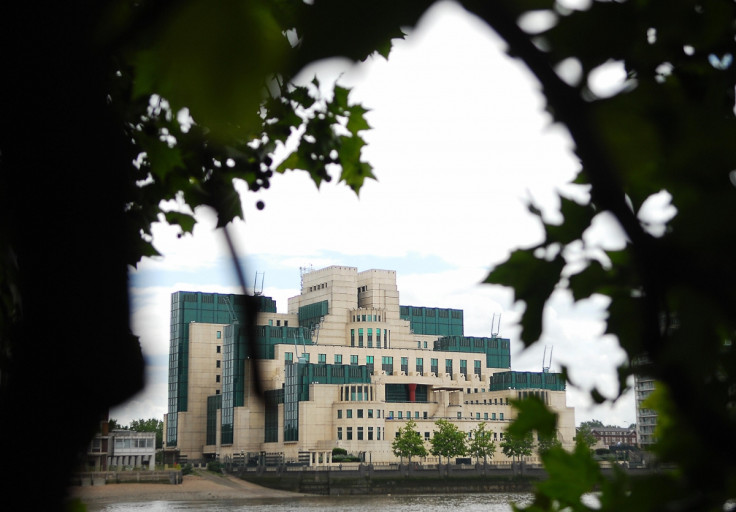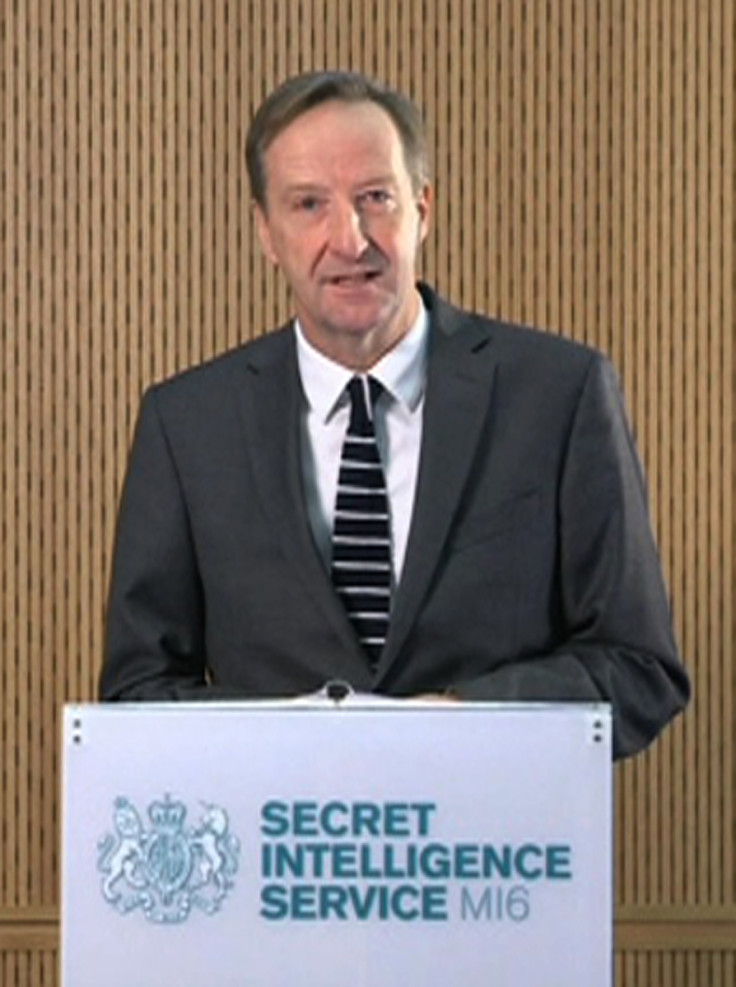MI6 chief: We need the Snooper's Charter to combat 'existential threat' of the internet
In a rare public speech, British spymaster says the IPBill is key to the future of spying.

In a rare public-facing speech, the chief of the British Secret Intelligence Service (SIS), better known as MI6, has spoken in favour of the UK's new surveillance legislation, the Investigatory Powers Bill (IPBill) – often referred to by critics as the "Snooper's Charter."
Speaking to media in the MI6 headquarters at Vauxhall Cross on 8 December, the British spymaster Alex Younger, codenamed 'C', spoke candidly about the impact internet and big data has had on traditional intelligence gathering. He said the web had turned his business "on its head".
"They represent an existential threat combined with a golden opportunity," he said while describing the complex nature of modern spycraft. Younger said the level of threat faced is "unprecedented", evidenced by the fact UK intelligence has foiled a dozen terror plots since June 2013.
It is the IPBill – alongside working in harmony with GCHQ and MI5 – he claims will help keep MI6 ahead of competition. "I believe that it will be our relationship with new technologies that will determine our effectiveness in future," he said.
"We have understood for years that our ability to work creatively has depended on a deep understanding of our surroundings," he continued. "This is as true now of our digital environment as the physical one. This is where we reap the dividends of our deep partnership with GCHQ.
"This is why we will use the opportunity of growth provided by our recent funding settlement to attract those with the skills we need to effect this transformation. And this is why we need to have the legal basis and capabilities now provided by the Investigatory Powers Act."
Last month, the IPBill was signed into UK law. It legalised the vast surveillance powers first exposed by Edward Snowden in 2013, including bulk surveillance, bulk interception of calls and emails and hacking on a mass scale – some of which the agencies were using "illegally" for over a decade.
Unsurprisingly, 'C', the real-life equivalent of Bond's 'M', sees the law as a means to fight a rising – and unpredictable – terrorist threat. "Used lawfully with full adherence to the concepts of necessity and proportionality, it can transform our ability to spot opportunities and threats alike," he noted.
"Incidentally, despite being 'C', I too am a member of the public and fully understand that, when it comes to access to data, the public will need and want to hold us to a particularly high standard of account," he continued. "This is an issue across both the public and private sector.
"The IP Act brings with it stringent checks and balances, including a double-lock of ministerial and independent judicial authorisation for the most intrusive activities. These checks and balances are vital as a means of ensuring your confidence, even as our activities remain secret."

Specifically referencing the more controversial aspects of the proposals, which many critics would define as 'mass surveillance', Younger said that when talking about the concepts of "cyber" and "bulk data analysis" people frequently forget they are a "man-made phenomena".
He elaborated: "When it comes to cyber warfare, it is not computers that are attacking us; it is people using computers. It is the combination of people and machines that form the threat, and this, incidentally, is the reason that I see our third mission, cyber, as a core role for MI6."
Many naysayers – some of which reside in the UK government – argue the vast IPBill powers have the potential to be misused, stretched and expanded upon. Younger rebuffed this by saying "every single officer here understands and respects the heavy responsibility" of using the spy tools.
"My officers are not from another planet; they are representative of the wider public and driven by the simple desire to protect our country," he said. "There is a pernicious myth that, somehow, intelligence services are moral equivalents. That the end justifies the means, whatever the cost.
"Much of the fictional portrayal of us is along those lines; and it is wrong. We do things for our country that would not be justifiable in pursuit of private interests. But they are necessary, proportionate and legal in pursuit of national security.
"We are a human organisation and we will make mistakes. We will have the courage to learn from them. But, fundamentally, we understand that if we undermine the values we defend, even in the name of defending them, then we have lost."
© Copyright IBTimes 2024. All rights reserved.























